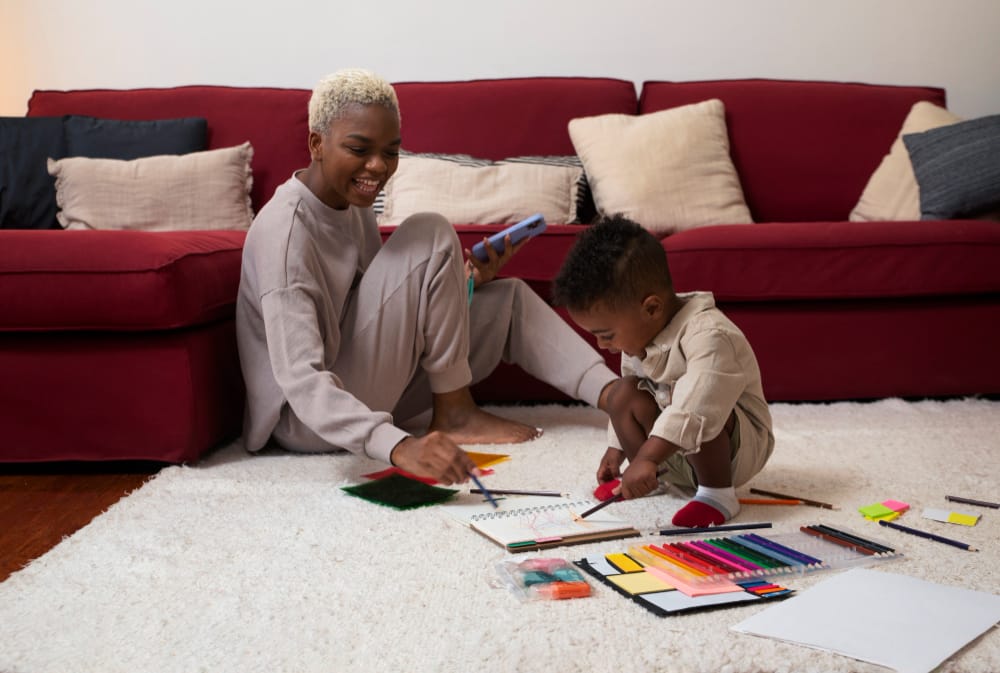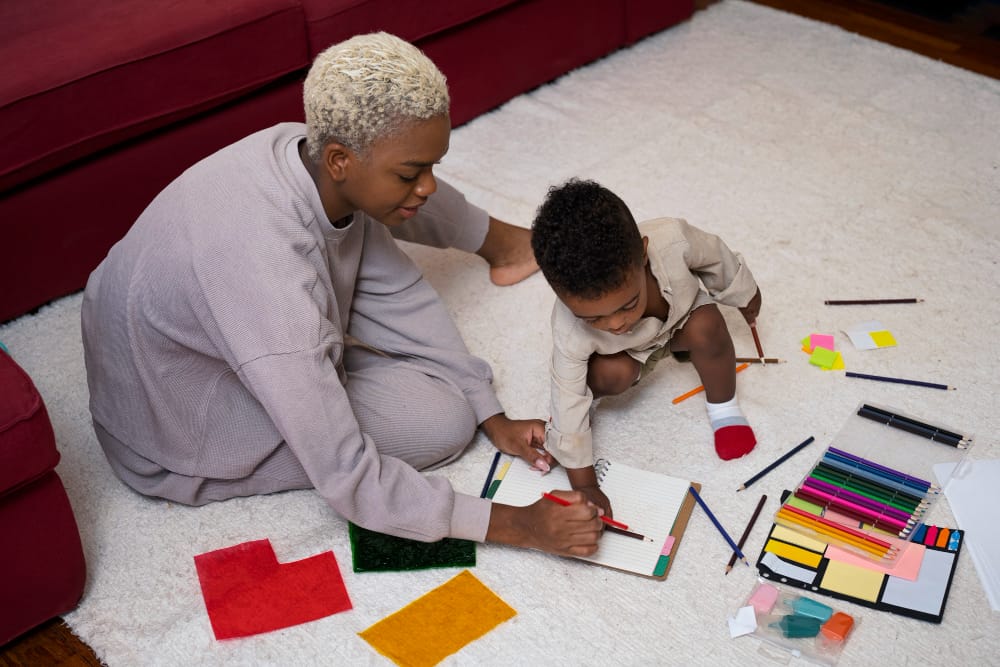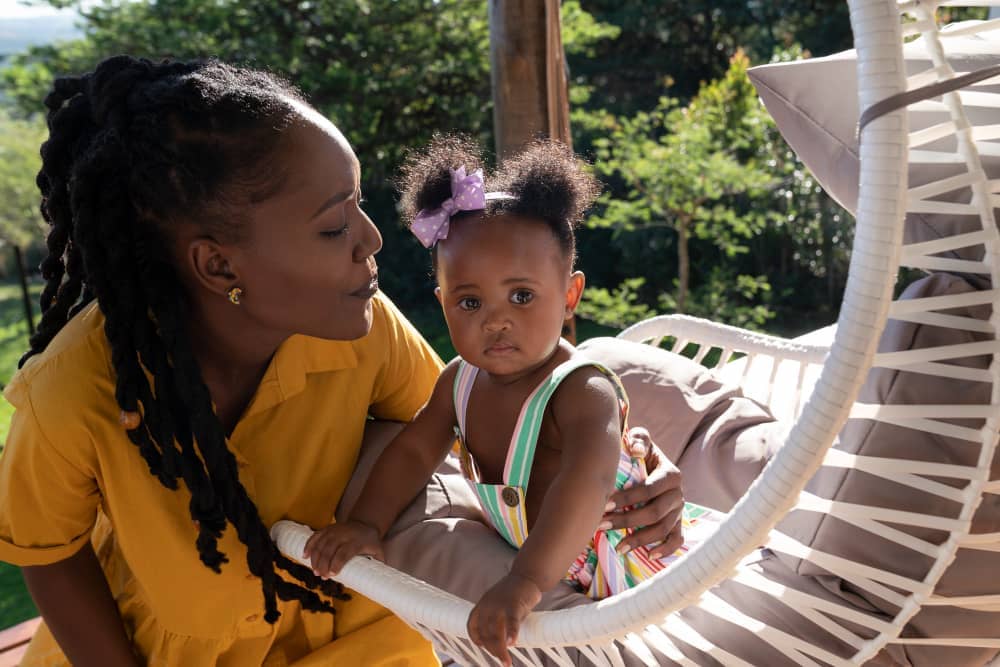How To Discipline Your Child With Love: 8 Tips for the Frustrated Mum
Discipline has a somewhat negative connotation. However, true discipline simply means teaching your child what is acceptable and unacceptable behavior. We can also define discipline as setting limits and rules to ensure your child’s safety and growth.
And contrary to popular belief, discipline is a good thing. Today’s guide will show you how to discipline your child with love, even in the heat of the moment when you might be tempted to snap, raise your voice, or discipline in an unhealthy manner.
Discipline Your Child with Love: 8 Key Tips
Here are eight tried and true tips you can start using when correcting your child.
1. Lay down clear and understandable rules.
Children need to understand what they are allowed to do and what is not allowed. Clearly stating and consistently enforcing these rules helps them know what to expect. For example, if a child knows that toys must stay in the playroom, they are less likely to bring them into other areas of the house. This consistency helps children to feel secure because they know what to expect.
2. Communicate openly with your children.
Avoid using codes, and always be clear with your children. Explain why rules are important and what happens if they are broken.
Once a child understands the reason behind a rule, they are more likely to follow it. Keep your language simple, and take your time when explaining.
Always listen to their questions and respond thoughtfully. This open communication builds trust and respect between you and your child.
3. Use positive reinforcement.
Instead of only focusing on misbehavior, make an effort to compliment your child when they do something good. Giving more attention to their negative actions can lead to more misbehavior because children often repeat what gets noticed.
For example, if your child is having trouble with homework, instead of thinking they’re just not trying, say something encouraging like, “I can see you’re really working hard on this.” A simple compliment like that can boost their confidence and motivate them to keep going.

4. Be a role model.
Children learn a lot by watching their parents. That’s why it’s so important that you demonstrate the behavior you want to see in them. If you want your child to be nice and polite, show kindness and politeness in your own actions. If honesty is important, then be honest with them as well.
For example, if you often get into verbal fights with your neighbor, don’t be surprised when your child acts out at school. They are only doing what they have seen you do.
The saying, ‘actions speak louder than words, ’ could not be truer. Kids, especially, tend to emulate whatever their parents do.
5. Practice empathy and understanding.
Try as much as possible to understand things from your child’s view. When they are wrong, don’t punish them; instead, scold them gently.
Let them understand what went wrong, how they can do it right, and how they can make other good choices in the future.
This helps children feel supported and can aid them in coping with different situations. And if they are up for it, hug them and reassure them that you love them.
Related: 6 Gentle Approaches for Managing Sibling Rivalry at Home
6. Use time-outs effectively.
Time-outs are a great tool for parents to help their children cool off and reflect on their behavior.
They should not be viewed as punishment but rather as an opportunity for self-reflection. After the time-out, ask your child the what, why, when, who, which, and how of what has occurred and how they can improve.
Here are the recommendations for using time-outs from the Child Mind Institute:
- Keep them as short as possible.
- Make it clear what behavior led to the time-out.
- Use time-outs sparingly, not for every minor offense.
- But also use them consistently; if you are trying to curb a certain behavior, use it every time that behavior occurs.
- Give kids the opportunity to repair their behavior when they return from time-out.
- Time-outs are best for kids between the ages of two and eight.
7. Establish natural consequences.
Natural consequences are those that are bound to follow a child’s action and can be understood as the environment’s reply.
For instance, if a child declines to put on a coat, they will not be comfortable outside.
This assists children to be able to understand the relationship between cause and effect.
When it comes to punishment, it is vital to ensure that the consequences are not harmful to the child and are within their developmental level.
8. Be patient and loving.
Trying to discipline your child with love is not something that happens spontaneously. It requires effort and dedication. Of course, there will be some issues and failures along the way, but this process has to be carried on patiently.
More importantly, ensure your child knows that you love them despite their wrongdoing. These are the principles of positive parenting—the choice is not made depending on what the child wants but because of the love and support that is given to him or her.
Wrapping up on How To Discipline Your Child With Love
Some days, you’ll nail it. Others, you’ll wonder if anything sank in at all. What matters most is showing up consistently, even when tired or frustrated. Your child won’t remember every correction, but they’ll remember how you made them feel understood, even during tough moments.
Parenting is built from countless tiny moments, such as catching yourself before that knee-jerk reaction, noticing when your kid makes better choices (even tiny ones), and having the humility to apologize when you mess up. This is how you discipline your child with love.
At the end of the day, the goal is not to raise a perfectly behaved child. The goal is to raise a child who learns to think through their actions, bounce back from mistakes, and keep their heart open to guidance. That kind of growth takes time, and yes, sometimes it’s messy. However, it will be worth every deep breath you’ve ever had to take.






